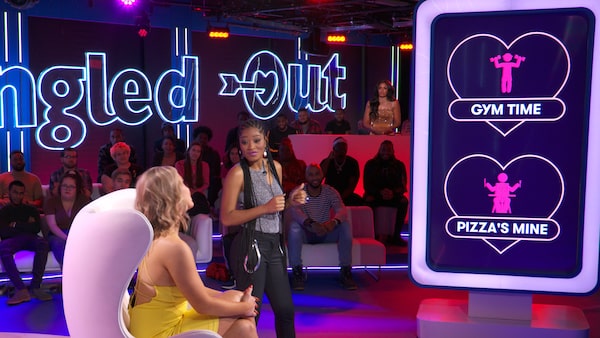If elevator pitches could kill, then the upstart streaming service Quibi came equipped with a deadly serious proposal when it sought out investors in 2018: Short-form videos for attention-deficit-prone audiences, all for the cost of a latte. And accessible only through a smartphone.
Millennials, the argument goes, barely look up from their mobile screens when they’re in the restroom, so why not have them consume Hollywood-calibre content while their eyes are captive? If the content comes from name-brand stars and creators such as Idris Elba, Jennifer Lopez, Steven Spielberg, Reese Witherspoon, LeBron James and at least one of the Hemsworth brothers (Liam, alas), then all the better. And the price for providing a time-killing alternative to an ocean of shoddily produced, gatekeeper-free social-media detritus? That would be only $6.99 ($9.99 without ads). Everyone’s morning commute – or lunch break, or treadmill workout, or questionably lengthy private time in the washroom – just got slicker. Sexier. Quibi-ier.
But nobody at Quibi – a questionable portmanteau of “quick” and “bites” – could predict that the concepts of commuting, exercise and “free time” would be upended by the time the service launched. That the last thing consumers might want to do at the beginning, middle or end of another long COVID-19-dominated day would be to hold yet another screen in front of their faces while watching content explicitly engineered for a more carefree world.

Sophie Turner stars in the dark and brutal drama Survive.Janis Pipars/Quibi
This week, Quibi launched itself into the most uncertain era of entertainment ever – a coincidence of timing that will prove to be either a boon or a bane to the company’s radical ambitions.
The brainchild of two titans from two very different industries – Hollywood animation prince Jeffrey Katzenberg (Disney, Dreamworks) and Silicon Valley chief Meg Whitman (eBay, Hewlett Packard) – Quibi has the connections, talent and financial assets (reportedly about US$1.75-billion) to turn itself into a serious contender for Netflix’s crown. Were it any other time in world history.
"I don't think we know how people will respond," Whitman told The Hollywood Reporter the other week. "It depends on what people are doing at home, how many people are at home. This situation is different every day."
Anecdotally, the situations of potential Quibi subscribers currently seems split in two: those who are at home with school-aged children and those who are not. Judging from social-media channels and, well, my own life, the former group has approximately zero minutes to devote to their phones that don’t involve answering e-mails, anxiously checking the news and maybe the odd scroll through escapist social-media outlets such as Instagram. Any leisure time, such as it is, tends to be spent later in the day in front of a larger screen – laptop or television – streaming longer-form content from such reliable producers as HBO and Netflix.
Of the other group, boredom seems to be the prime obstacle, but with an ocean of content already available to those stuck at home sans kids and a more malleable work schedule devoid of traditional breaks and downtime cycles, are they going to make room for short-form content that was designed to be digested not in one chunk on the sofa, but on-the-go? Streaming and downloading Quibi content 10 minutes at a time might make sense when you’re on the subway or the bus or eating a sandwich on a park bench, but not when you could just as easily veg out in front of an hour-long episode of Tiger King.
But if Quibi wants to earn any audience’s trust, then it is going to have to drill down on what, exactly, audiences want to watch. Of the few dozen Quibi series made available to media before launch, only a handful have the potential to grab overloaded consumers’ attentions, even if for only a few minutes.
The service’s programming is broken into three categories: “Movies in Chapters,” “Unscripted and Docs” and “Daily Essentials” (the latter being news, sports and culture programs, including offerings from Quibi’s Canadian partner, Bell Media).
Ostensibly, the movie lineup is the one that should entice curious audiences, with titles boasting slick production budgets and such recognizable stars as Anna Kendrick, Christoph Waltz, Will Forte and Game of Thrones’s Sophie Turner. But the productions so far resemble achingly transparent attempts at hitting the prestige-television highs of HBO, with every project falling far short of such a lofty ambition. Whether it’s the tired concept of the Hemsworth/Waltz thriller Most Dangerous Game (humans hunting humans for sport? Tell me more, I guess?) or the drab suburban murder mystery When the Street Lights Go On, it is entirely debatable whether any of these “mini” series would get a greenlight even at the notoriously un-picky everything-for-everyone Netflix. Some of the projects, especially the Turner-led drama Survive, are also mismatched in tone for quick digestion – Turner’s first episode is so dark and brutal in content that it is hard to get through a single 10-minute chunk, forget anticipating a dozen new chapters.

Liam Hemsworth stars in Most Dangerous Game, which is hamstrung by the tired dramatic concept of humans hunting each other for sport.
Instead, Quibi’s programming works best when it embraces the inherent silliness of the service’s concept and name. The wild Tituss Burgess-hosted cooking show Dishmantled features home cooks trying to figure out a recipe after having a dish fired at them by a cannon – a glorious 30 Rock joke come to life, in the best possible way. The brisk and delightfully mean-spirited Memory Hole, played host by Will Arnett, is like an update of E!'s Talk Soup, but for all the cringe-y pop-culture moments that time forgot. And a reboot of MTV’s dating show Singled Out, now played host by Keke Palmer and Joel Kim Booster, is as unhinged and unabashedly horny as it ought to be.

Quibi has rebooted the MTV dating show Singled Out.Quibi
Quibi also gets bonus points for optimizing – sort of – the visual space of a phone’s screen. Meaning that no matter which way you hold your device, a Quibi show will fill the screen’s entire frame – no black bars or otherwise dead space allowed. (This doesn’t stop a program from looking horrible if, say, you’re a monster who holds your phone vertically upright while watching a video, with the image aping a horrible facsimile of an old pan-and-scan VHS tape. But you have to do what makes you comfortable in this day and age.)
Bell Media’s partnership on the news and sports side of things also makes sense on the surface; any Canadian subscriber is going to want domestic news content, not imported coverage. Although the entire “Daily Essentials” element itself remains a curious proposition at the moment, as in: How many more dire headlines are audiences going to desire during our current “leisure time”? (As for Quibi being any sort of competitor to Bell’s own Netflix competitor, the streaming service Crave, a representative for Bell says that “there is room for multiple streaming platforms to co-exist to service the specific needs of our audiences, when and how they want to consume it.”)
Over time, Quibi will add more offerings, including Spielberg’s After Dark, an anthology horror series that, like the service’s best offerings, leans into the absurd (it will only be available to view after sunset). And there is always the strong chance that even more of the world’s work force will be laid off, and suddenly free time will be depressingly abundant (although maybe not enough disposable income to justify a monthly $6.99 fee). For now, Quibi’s utopia will have to settle for our dystopia.
Plan your screen time with the weekly What to Watch newsletter, with film, TV and streaming reviews and more. Sign up today.
 Barry Hertz
Barry Hertz